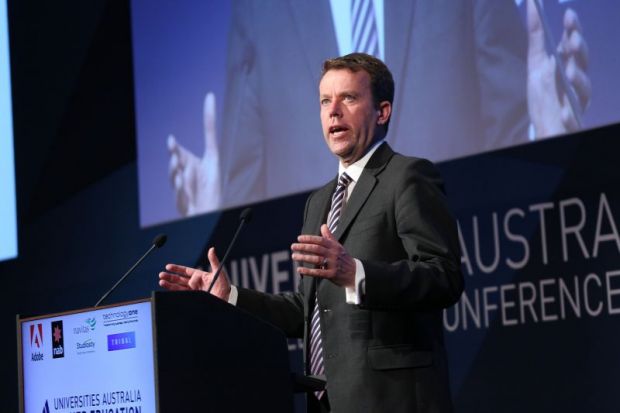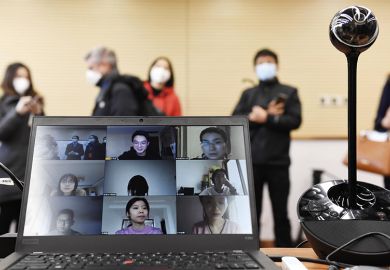Australia’s government will announce plans to boost university capacity by rearranging tuition fees, with people training for employment growth areas set to benefit – and law, commerce and humanities students the big losers.
In a 19 June address to the National Press Club, education minister Dan Tehan will outline plans to fund an additional 39,000 university places by 2023 – and 100,000 by 2030 – to accommodate surging demand triggered by the pandemic and rising numbers of school graduates.
The government will bankroll the extra places by raising tuition fees. But the increases will not be universal, with costs set to fall in some disciplines.
Science, health, architecture, computing and engineering students can expect 20 per cent fee cuts, while those studying to be teachers, nurses, clinical psychologists or language practitioners will pay 46 per cent less. Agriculture and maths degree fees will be slashed by 62 per cent.
But tuition costs for law and commerce courses will rise 28 per cent, while humanities students face a massive 113 per cent fee hike.
Fee changes were flagged by Mr Tehan during the Universities Australia conference in February, when he said the balance of student contributions and government subsidies needed to be adjusted to “21st century values and conditions”.
He will draw distinctions between his proposals and former education minister Christopher Pyne’s unpopular 2014 attempt to deregulate university fees, which was ultimately blocked in parliament.
Mr Tehan will tell the Press Club that many Australian courses will still cost less than their US and UK equivalents. “This does not mean fee deregulation,” his speech says. “This does not mean $100,000 (£55,000) degrees.”
The minister will urge students to save money by focusing on anticipated job growth areas. With the fee changes levied at subject rather than degree level, students will be able to mix and match to reduce costs.
“If you want to study history, also think about studying English,” the speech says. “If you want to study philosophy, also think about studying a language.”
People who are already enrolled will see their fees go down but not up under the proposals, the speech stresses: “No current student will be worse off.”
While university lobbyists are likely to welcome the funding of more places, humanities supporters will express outrage. Australia’s humanities faculties are already in decline, with the research assessment exercise tracking diminishing publication outputs.
Government scepticism about the benefits of humanities study were highlighted in former education minister Simon Birmingham’s vetoing of 11 research projects. But advocates say the humanities have an essential role to play in tackling emergencies from the pandemic to climate change, and that humanities degrees can propel graduates into jobs in often unrelated areas.
Mr Tehan is likely to argue that humanities students contribute too little to course costs and that government subsidies should favour vocationally oriented degrees with high employment rates.
“We will reform the system so that the student contribution and the commonwealth contribution equals the cost of teaching that degree,” his speech says.
This could spell further trouble for research, which is cross-subsidised from the proceeds of teaching. With windfalls from international students slashed by pandemic-induced border closures, surpluses from domestic teaching revenue – which currently average about 10 per cent, according to an analysis by policy expert Andrew Norton – are increasingly crucial to help fund research.




